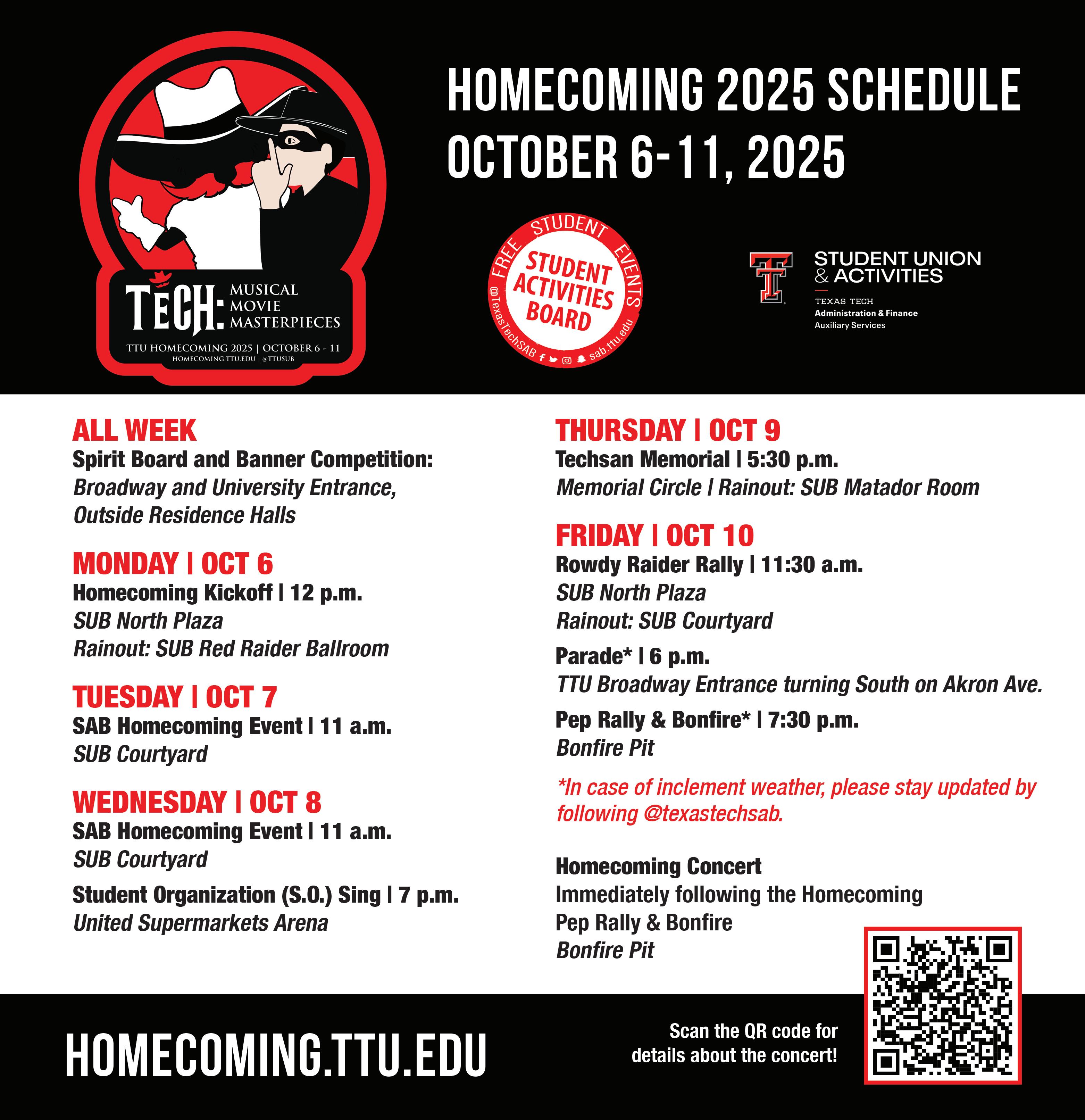
COMMUNITY




By AYNSLEY LARSEN MaNagiNg editor
One of the first rooms in the Mechanical Engineering North building, Jeff Hanson’s office is rarely empty. It teems with students working problems on his wall-sized whiteboard, asking for edits from the “go-to guy” for resumes or simply hanging out in the busy, personality-clad space.
He’ll often lose track of time in that room, he said, so caught up by the questions he’s answering and the conversations he’s having.
Hanson has taught roughly five classes a semester at Tech for the last 17 years, and his open-door office policy welcomes anyone seeking his help. He and his wife will invite students to their home for picnics and dinners, building relationships with them, regardless of whether they sit in his classrooms.
with IgA nephropathy, a disease in his kidneys which has raised his blood pressure and caused frequent migraines for the past 35 years. Until recently, Hanson said his symptoms were manageable.
“That’s just the way it is,” Hanson said. “The rest of me feels fine, right?
I’m a healthy guy.”
Since the beginning of this year, his disease has progressed. Hanson said a walk to Tech’s Student Union Building will leave him with aching hips and the feeling of 10,000 pounds weighing on his back, and his feet most often feel the tell-tale tingle of having just fallen asleep.
Instead of his typical energetic performances at the front of his classrooms, Hanson recently has opted to stay seated during lectures.
My students are the reason I want to get healthy again.
JEFF
HANSON SENIOR LECTURER
“We only have two kids, but we really have about 17,000,” Hanson said. “I’ve graduated about 20,000 engineers in the time I’ve been here. Those kids are just — they’re like my kids.”
It was these kids — both blood and bonded — that stuck by Hanson when his health declined.
In 1990, Hanson was diagnosed
The lack of energy to do things, to help his students, is what’s killing him, he said.
“I’m only 58, and I can’t live like this,” Hanson said. “Before, I could live with it. It was just high blood pressure and headaches, but the fatigue … . Something’s got to change.”
That change began with a social media post from Hanson’s sister asking for individuals willing to donate a kidney. The response was immediate. Hanson said he battled with the idea
of a living donor transplant, and never expected the response he received from his students.
“What happens if you get sick? I would feel, I would feel awful about that,” Hanson said. “I mean, how do you ask somebody to do something like that? I mean, I just can’t imagine.”
Jennifer Cox, a 2016 mechanical engineering Tech graduate, saw the Facebook post from Hanson’s sister on Aug. 21 detailing the extent of the instructor’s disease and his now-urgent need for a transplant.
The post was the first Cox had heard of Hanson’s kidney disease in her near-decade of knowing him. She signed up on his donor list that day.
“To be entirely honest, it wasn’t a decision,” Cox said. “I didn’t have to stop and think about it. I’m relatively young. I’m healthy. I have two proper-functioning kidneys. Why wouldn’t I do that?”
The text exchange between Cox and Hanson when she told him she tested to be a donor went like this:
Hanson: You sweet thing. I love you so much. I don’t understand why someone would do that for me, but I am beyond grateful. I really love you from the bottom of my heart. I wish you were close. I have the biggest hug for you.
Cox: Because I love you and I have a spare one, and you need it. It makes perfect sense to me. This is a no-brainer.
Hanson’s was her first class on her

first day as a Tech student. Entering col-
lege in her mid-20s with a husband and twin daughters — who couldn’t join her in Lubbock until months into her first year — Hanson quickly became family.
“To this day, I consider him as close, if not closer, than my blood family members,” Cox said.
Now based in Everett, Washington, Cox is a senior engineering manager at Boeing.
Hanson had his same open-door office policy when Cox was a student,
By KETIH INGLIS sports reporter
On Oct. 25, 2024, former Texas Tech defensive back C.J. Baskerville went down after a routine assisted tackle against Oklahoma State – a collision he didn’t know at the time that would end his hopes of playing in the NFL.
The two-year Red Raider was projected to be selected in the back end of the 2025 NFL Draft. Of the 257 life-changing calls made from
league offices to top prospects, Baskerville received the one he wasn’t hoping for.
He stepped outside his home and picked up the phone, only to receive news that 26 teams had medically red-flagged him.
I’m a God-fearing man.
I believe God puts me in situations and has me do things and has things happen to me for a certain reason
C.J. BASKERVILLE
FORMER TECH ATHLETE
Baskerville said the other six teams in the league
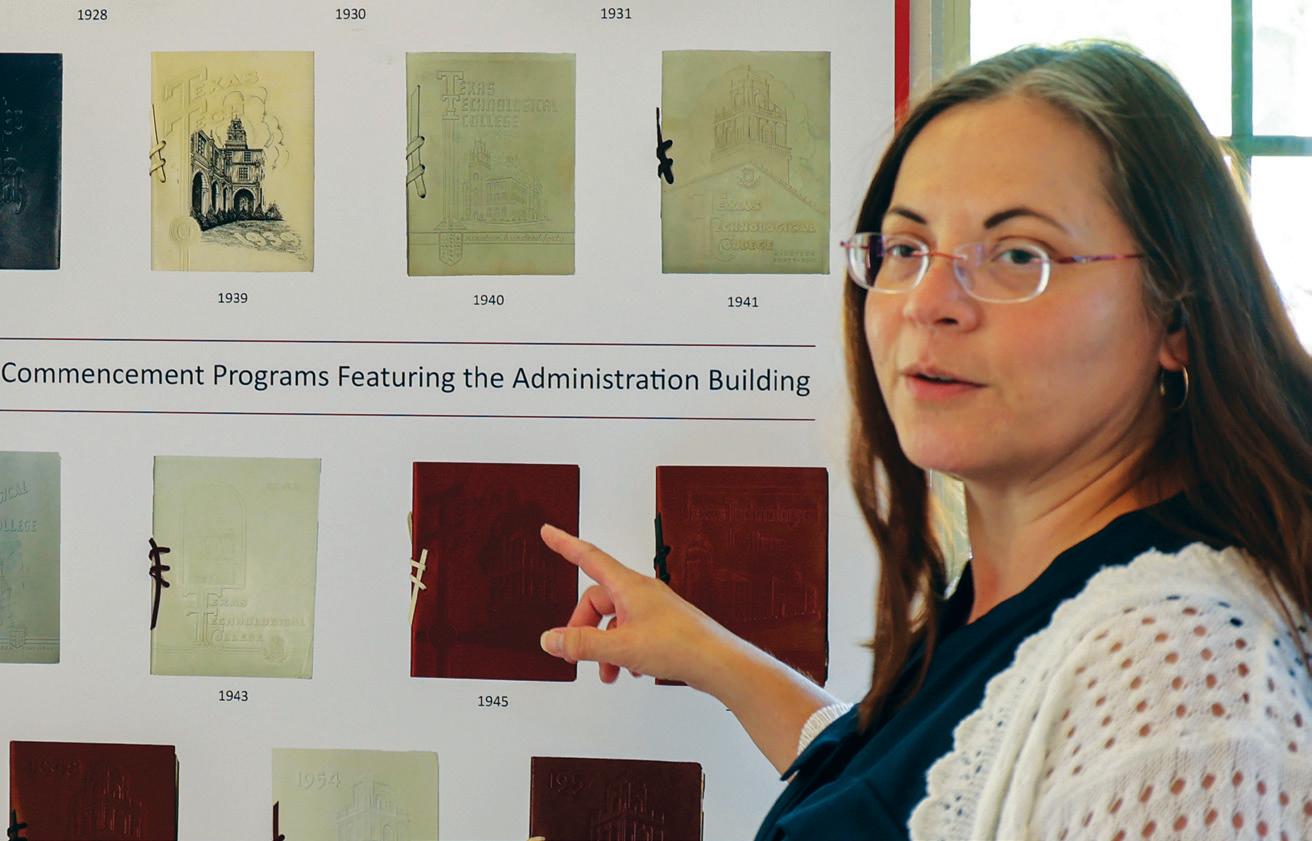
that didn’t label him with the designation weren’t interested in his talents. The collision resulted in a stinger. He received two bowls and discs in his spinal cord. The medical process became something that not many teams were fond of, as word spread quickly throughout the
league.
“I’m bulging at two millimeters, and paralysis is at four millimeters,” Baskerville said. “I’m already halfway there. All it would take was a hit in the right manner, and I would be paralyzed.”
With not many teams willing to take a shot, the Denver Broncos invited Baskerville to their rookie mini-camp in May to evaluate him shortly after the draft ended.
SEE ALUMNUS, PG. 4
By ERIN DEMBO Features writer
From finding artifacts, to people eagerly wanting their history preserved, the role of an archivist is tedious and requires patience, diligence and empathy.
The Southwest Collection/ Special Collections Library was founded in the mid 1950s and houses many archives of rare books, southwest music, Texas Tech memorabilia and the Sowell Family Collection. Lynn Whitfield, a university archivist for Southwest Collection, works exclusively with original artifacts about Tech. She said the library primarily researches and
collects original materials, with a large number of them being directly tied to the university.
“I’ve actually had an alumnus bring me some of (her) band costumes and her dad’s band uniform jacket,” Whitfield said.
Katie Fortenberry, a second-year master’s student from Lubbock and assistant for the archives, said the task of processing materials is a lot of work, including taking inventory and putting artifacts in their specific locations. It’s an incredibly special moment when they’re able to be a part of organizing someone’s personal life.
SEE ARCHIVING, PG. 3
but it looked different from the cozy, student-filled space he has now.
Tucked into a small corner, his office sat maybe two students at a time, Cox said. Instead, a stranding-room-only hallway leading into his office held space for Hanson’s students, each of which he took time to know.
Though it hurts him to even walk sometimes, Hanson hasn’t closed his office doors.
COMMUNITY, PG. 3
By ALLIE SCOTT News editor
The Texas Tech System Board of Regents voted unanimously Sept. 4 to name Sen. Brandon Creighton, R-Conroe, as the sole finalist for the System’s next chancellor.
Creighton has played a central role in shaping Texas higher education as chair of both the Senate Committee on Education K-16 and Subcommittee on Higher Education since 2023.
In recent years, he authored legislation banning diversity, equity and inclusion programs at public universities; restricting campus protests and restructuring faculty governance.
Andrew Martin, tenured art professor who leads Tech’s American Association of University Professors chapter, said Creighton has authored legislation that opposes the AAUP’s core values, which include academic freedom, shared governance, tenure and stable funding, according to the AAUP website.
“We want our students to be capable of being informed, critical thought, and without that I don’t think you can really be free, and so we see that as one the things that’s most important to ensure continues,” Martin said.“I want to believe that Senator Creighton, as our future chancellor, believes in that.”
SEE TECH SYSTEM, PG. 2
Martin expressed concern, noting that while the Faculty Senate and Tech administrators worked to maintain strong faculty governance, the Senate’s influence has somewhat diminished. This reduction is not a trend they want to continue, hoping these limitations will be reduced or eliminated.
“I truly hope that some of these assumptions — like the freedom of speech and things that are constitutionally protected — truly matter and that the campus is going to be a place where everyone can have that freedom,” Martin said.
Senate Bill 37, a bill directly affecting universities, expands state oversight of public higher education by transferring curriculum authority to political appointees, restructuring faculty senates to be advisory-only bodies. Martin said he hopes Creighton will address the concerns about the increased involvement of the Board of Regents in academic decisions.
Martin clarified he was speaking as a private citizen, not as a representative of the university or AAUP.
“Academic freedom, including the faculty and students, allows us to conduct research and to learn freely, which I think is something we all be-
lieve in,” Martin said. “It’s an exciting time for this university. I can’t think of a time when it’s been a more ambitious and promising time for us.”
In statements made to the Tech System Sept. 4, Creighton expressed gratitude and said he was excited about the future of the system.
“The Texas Tech University System has a proud history and limitless potential,” Creighton said in the Tech System’s story on Sept. 4. “From research and innovation to nationally prominent academic programs, it represents the very best of Texas. I am honored to be named sole finalist for chancellor and look forward to building on this momentum and leading the TTU System into its next era of success.”
Faith Geistweidt, president of the Tech Student Government Association, expressed optimism regarding Creighton’s appointment and said she trusts the Board of Regents’ decision. She said Creighton’s leadership will benefit the student body and university.
“I’m confident in the Texas Tech System Board of Regents selection of Senator Creighton as the next chancellor for the Texas Tech University System,” Geistweidt said. “I’m positive that his leadership as chancellor will strengthen Texas Tech’s commitment to both student success, but also, I think, in institutional advancement and excellence.”
The SGA works closely with the Board of Regents. The current student regent, Eli Heath, provides a direct link and advocates on the SGA’s behalf. This facilitates communication between the chancellor, the SGA and the student body.
choices are heard and opportunities expanded,” Geistweidt said.
The Tech System sees Creighton’s political and legislative experience benefiting his vision for opportunity, innovation and economic growth, all aspects that align with the Tech System’s mission, according to the Tech System website.
Creighton, who has served in the Texas Senate since 2014, will step down from the Texas Legislature. His retirement will trigger a special election to fill his seat.
His commitment to higher education and vision for growth will ensure student choices are heard and opportunities expanded.
FAITH GEISTWEIDT SGA PRESIDENT
Geistweidt said Creighton’s experience in higher education and knowledge about how the Texas legislative system operates will benefit the Tech community while helping maintain affordability, expand opportunities and address a rapidly growing student population.
“His commitment to higher education and vision for growth will ensure student
Two of Tech’s former chancellors also served in the Texas State Senate. Kent Hance, 2006 to 2014, served in the State Senate from 1975-79. Robert Duncan, 2014 to 2018, served in the State Senate from 1996 to 2014.
The chancellor position also ranks among the most lucrative in higher education. Outgoing Chancellor Dr. Tedd L. Mitchell earned $2.5 million in 2022, making him the highest paid public university leader in the nation, according to The Chronicle of Higher Education.
Cody Campbell, chairman of the Tech Board of Regents, spoke during the special Board of Regents meeting on Sept. 4 and backed Creighton during the unanimous vote.
“Sen. Creighton is uniquely positioned to advance the
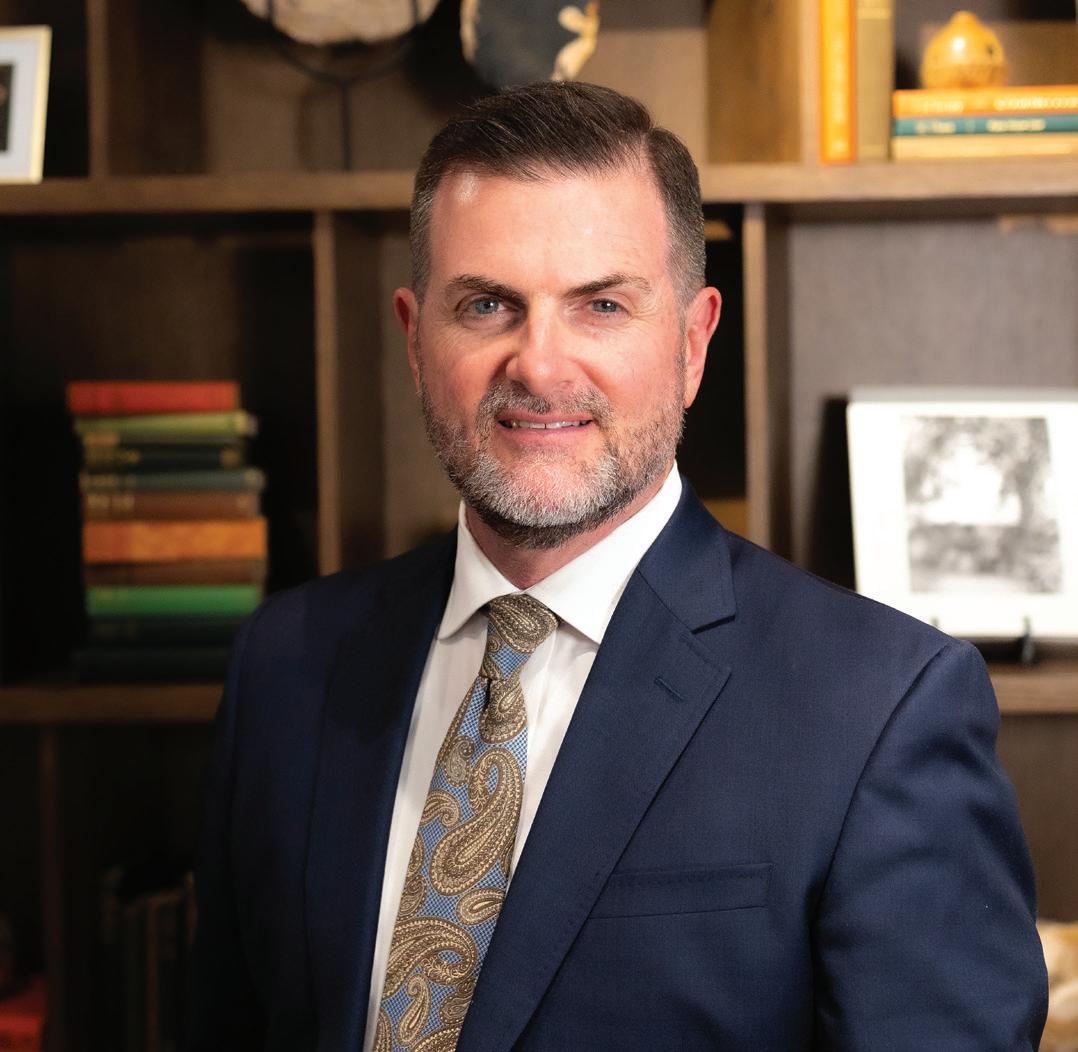
the Texas Tech University System and continue the trajectory of growth and success,” Campbell said.
On Aug. 31, Creighton wrote on X, formerly Twitter, commending the success of Tech and how he hopes to build upon it.
“Texas Tech is the tip of the spear for the future of higher education — leading in academics, athletics and innovation,” Creighton wrote.
“Over the past six years, no university system in Texas has
taken more bold steps forward … . I feel very blessed to have been considered for the role of chancellor.”
He also praised outgoing Chancellor Mitchell, writing that he looks forward to carrying his legacy forward.
“There is no greater purpose I would consider than working to make generational changes that transform the lives of young Texans for decades to come,” Creighton wrote.

CONTINUED FROM PG. 1
“I find it very fascinating because you get to be a part of somebody’s life, even after they’ve lived it, because you get to see some of the things that they’ve done throughout their life – thoughts they’ve had, research they’ve done,” Fortenberry said. “Especially professors, books that they’ve written, all of these different things, curriculum that they’ve created.”
According to Whitfield, the Southwest collection has made over 300,000 regional newspaper digitizations. They can put these up online for people to freely access
for research purposes, Whitfield said since everything is becoming more electronic, the archives keep growing every year.
“We’re one of the biggest newspaper depositories in Texas, and so they work with a lot of small-town newspapers,” Whitfield said. “A lot of people do genealogy, and they go through the newspapers.”
Fortenberry said the process takes multiple steps such as bringing out the manuscripts, organizing them based on people and dates, preserving them into sleeves and labeling them so that they are easily located in the Southwest Collections Library.
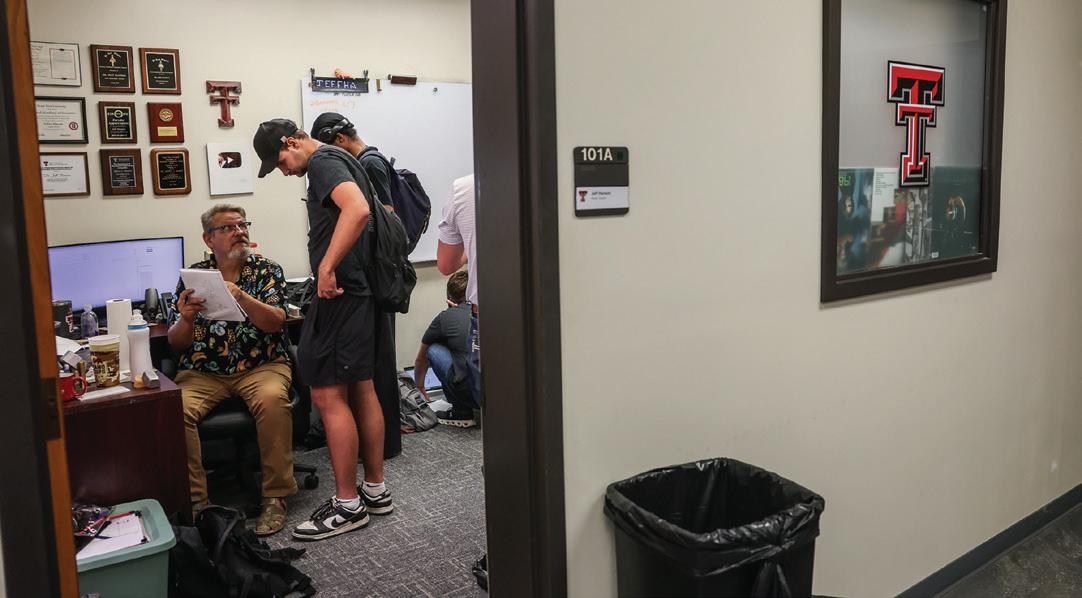
CONTINUED FROM PG. 1
“I feel like it, but I never have. You just suck it up and do it,” he said.
Should he find an eligible donor, Hanson said his hope is to receive the transplant at the beginning of Christmas break in the Dallas/Fort Worth area, take his holidays to recover and be back teaching in time for the spring semester.
“He treats everyone like family, so we treat him like family,” said Hunter Jones, a senior mechanical engineering major from Houston.
Jones sat in Hanson’s office massage chair, noting the faded and frayed headrest, a testament to the collective hours spent in the teacher’s company.
“I think the reason why so many people wanted to help him out is because he does the
“You know correspondence between this person and this person and it would be stated in that letter in the date range that is specific to those letters, so 1996 to 1998,” Fortenberry said.
The archives are very diverse and hold a multitude of artifacts, with some even having damage that might require special care, said
Fortenberry. She said to properly take care of these items, archivists need good management, organization and empathetic skills.
I find it very fascinating because you get to be a part of somebody’s life, even after they’ve lived it, because you get to see some of the things that they’ve done throughout their life –thoughts they’ve had, research they’ve done.
KATIE FORTENBERRY ARCHIVES ASSISTANT
Once an individual gains the skills necessary to protect and preserve artifacts, Fortenberry said it becomes less about simple research and more about actual interest in the history of the items.
“Knowing how to do re -
same thing for us,” said Ethan Rojas, a senior mechanical engineering major from El Paso.
Hanson listened as Jones, Rojas and others in his office spoke so highly of him, and he turned in his chair as he began to tear up.
“My students are the reason I want to get healthy again,” Hanson said.
An update from Baylor Scott & White Health earlier this month stated over 50 possible donors had signed up on Hanson’s behalf.
On Sept. 15, the hospital said it’s received an overwhelming number of signups and has created a waitlist for incoming possible donors.
“If sainthoods were given out for just being great, wonderful, supportive, compassionate — not to mention how bloody brilliant he is,” Cox said. “To me, he would be a candidate, bar none.”
@AynsleyLarsenDT
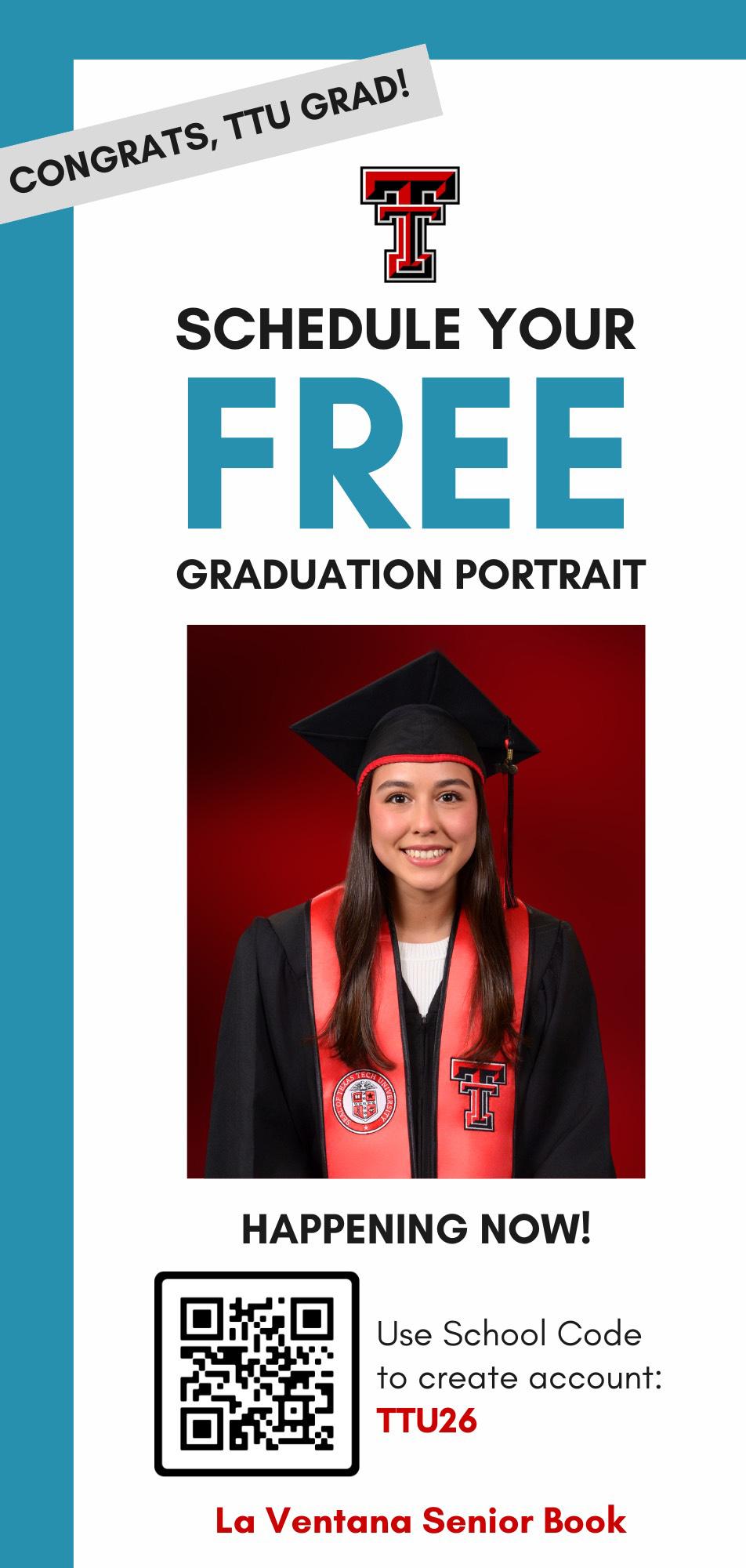
search in that manner is incredibly useful, and even then it’s not just research,” Fortenberry said. “If you’re interested in something, find that name or find that topic and see if it pops up somewhere and you’re actually able to engage with the physical thing if you can.”
Adam Ramirez, a fourthyear advertising student from El Paso, and assistant for the university archives, said his favorite part about the collection is finding the most random things people keep records of.
“This write up of something that said we need to send money to this entity, because one of their students tripped on a mat that
was rolled up,” Ramirez said. “ Then she flew through a window and I was like,it’s really surprising.” Ramirez said his job not only includes making artifacts available to researchers, but he also gets to make the choice on how it’s specifically organized. He said this personal choice makes him feel more connected to the history he’s managing.
“Yeah, some people will say, ‘Oh, these are all handwritten notes, while these are all letters,’” Ramirez said, “I think that’s really interesting because you kind of get to handle it in your own way.”
By ELIJAH FARIAS Features Writer
Smells of fresh food and pan dulce fill the air of Jimenez y Friends Barbecue y Taqueria as Michael Flores gives back to the community and culture that raised him.
Since 1969, the family-owned restaurant has been serving Lubbock and Texas Tech with its authentic Mexican cuisine and pastries.
“It just kind of ties you back to your Hispanic culture, your Mexican roots, your influence. So really, just our recipes, it’s the same stuff that we’ve known just in our family,” said Flores, co-owner and pit master at Jimenez y Friends Barbecue y Taqueria.
The restaurant has had its location moved around Lubbock since the start, but he said it has always kept its identity within the community and its Hispanic origins.
“My grandparents are from Mexico, my mom is from Mexico, so a lot of those recipes come from there,” Flores said.
At one point, the restaurant had a satellite location right across from Jones AT&T Stadium from the mid-’90s to 2003, Flores said. Although not located there anymore, the restaurant still finds ways to get involved with the university.
“A lot of departments, they reach out. They want to get food with us. We definitely want to feed them,” Flores

said. “But I was able to feed the Tech offense a couple months ago, thanks to coach Mack Leftwich, the offense coordinator.”
Flores, a Tech alum, studied restaurant, hotel and institutional management while attending Tech and graduated in 2019. His time at the university was great and taught him a lot about the food industry and the business side of things, he said.
“I was able to translate really just a lot, like the way you kind of deal with customers, people,” Flores said. “(You) kind of look at numbers a little differently, just kind of the way you look at your situation differently.”
Flores said he mastered his barbeque skills when he got a job as a cutter at The Shack BBQ. While working there, he learned how to cook and was able to use those new skills at his family’s restaurant.
Flores said it’s great to see people come back and reminisce about the restaurant. Since the beginning, the recipes haven’t changed, and he and his family hope to keep the restaurant going for as long as possible.
“That’s really all we want, it’s just to keep this legacy alive in some form of fashion,” Flores said. “But keep it true to the roots as well.”
Flores said he hopes to keep making his family proud through the restaurant, and that for those who want to do something going forward, to keep believing and trusting in themselves.
“Just keep doing something that you believe in. It’s something to take pride in,” Flores said. “And don’t forget where you come from as well. Don’t forget who you are and why you’re there. Just keep going.”

CONTINUED FROM PG. 1
It was the only time he saw any type of NFL action before the Broncos became unwilling to move forward with the risk of a potential life-changing injury. Baskerville said it was frustrating as he couldn’t feel the physical extent of the injury, but knew it was in his best interest.
“At that point, I was like, ‘If it’s not safe, and teams executive doctors are feeling this type of way about it, then maybe it’s not safe for me,’” Baskerville said.
Baskerville decided to medically retire from the sport on July 27. From then on, it was about turning the page to a new chapter in his life with a foundation rooted in his faith.
“I’m a God-fearing man,” Baskerville said. “I believe God puts me in situations and has me do things and has things happen to me for a certain reason.”
With the belief that his career was over, he returned to Tech to pursue a master’s degree in oil and gas energy and became a landman in August for Ellerbe & Harrison.
The correlation between an extension of his educa -
tion and his current career field is to better understand the roots of his job. Baskerville said he wants to get everything he can out of his degree.
He said he’s learned to come to terms with his situation as he looks to make advancements in his career.
“I’m really trying to find the issues within the industry and kind of exploit them a little bit to create a service,” Baskerville said. “I don’t know what it is yet, but it’s going to hit me at some point.”
As Baskerville returned to the school where he closed his collegiate playing career, his presence still resonates with his previous teammates. He was met with hugs from head coach Joey McGuire and fellow teammates during a pre-game event ahead of Tech’s season opener.
It wasn’t something he said he expected, but it reciprocated the energy he had given as a player on and off the field.
Tech junior safety Brenden Jordan said he still carries advice from Baskerville.
“He said just play just play fast play hard every down like its your last,” Jordan said.
After moving on from an
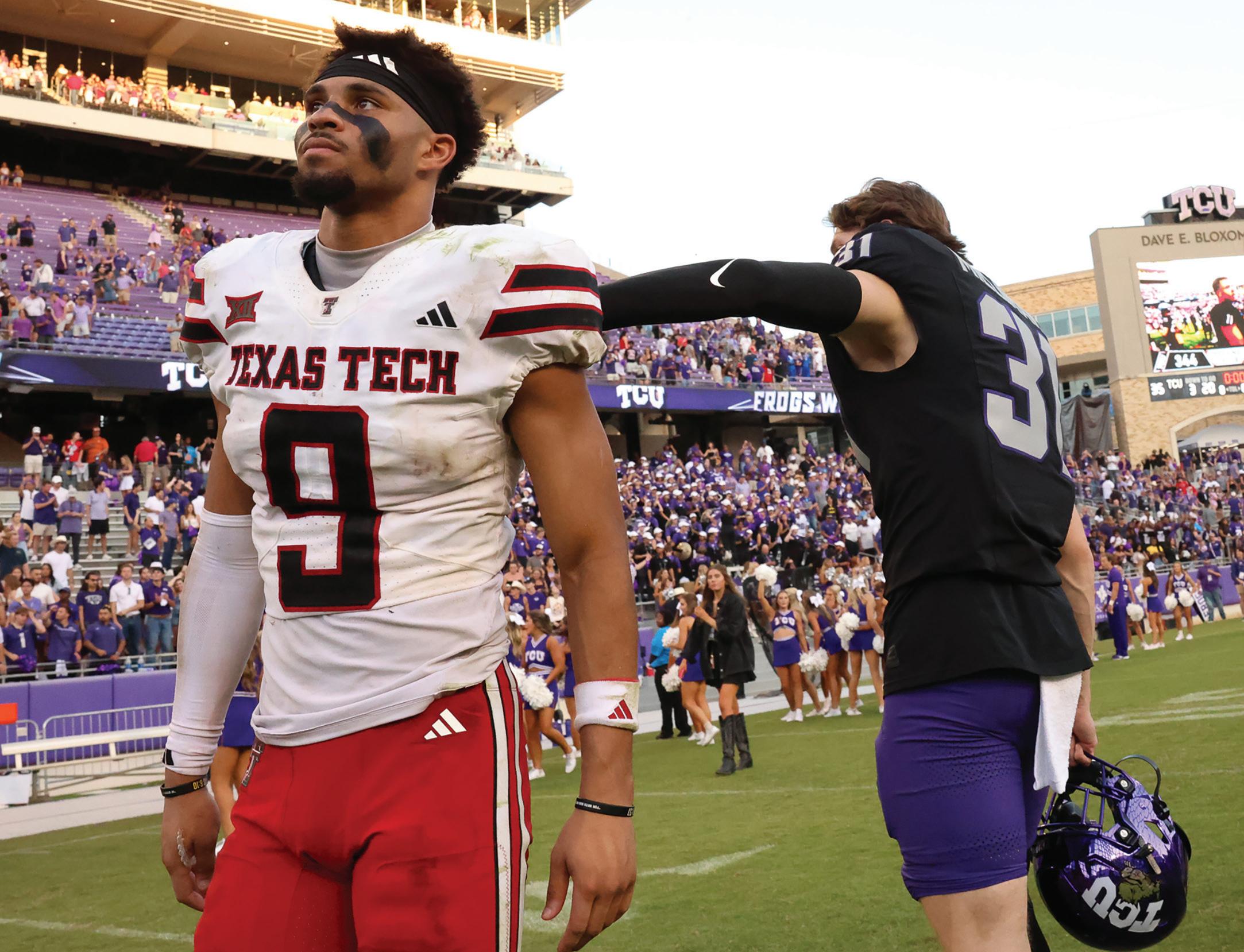
opportunity not many get, Baskerville said he’s officially shut down any chance for a potential NFL comeback.
His goals now reside in building a future in which
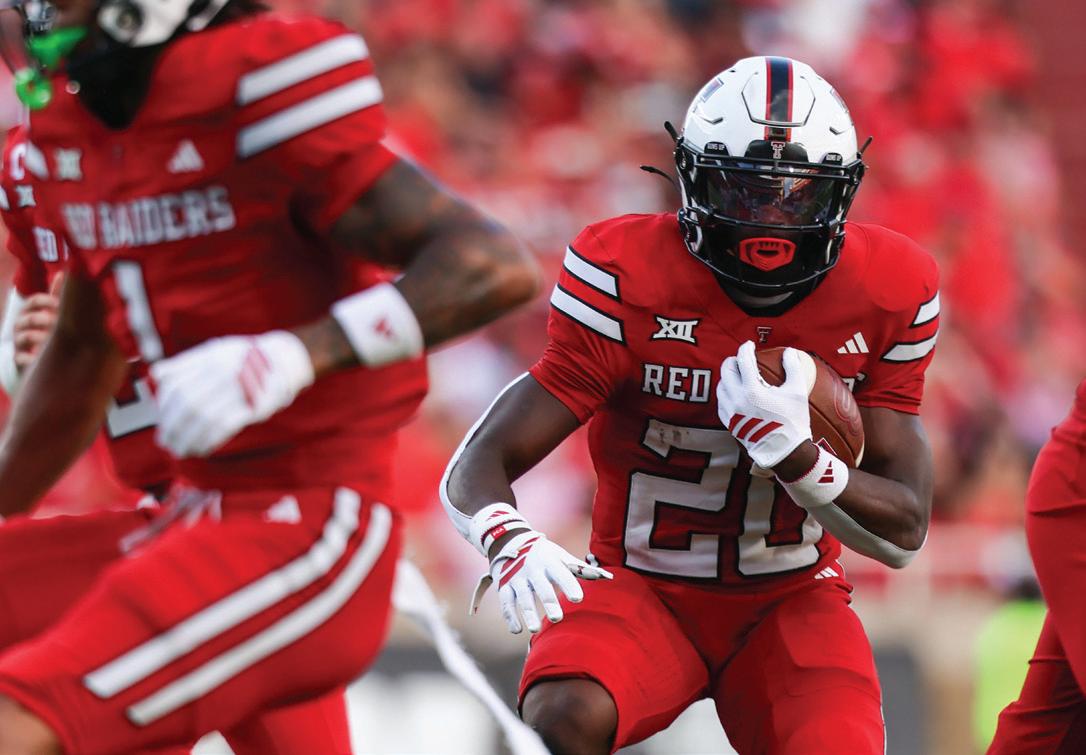
yards in the Big 12 with 645 and eight touchdowns.
Williams said comfort with the guys around him and the willingness to step up for each has allowed Tech to progress despite setbacks.
“Me and Cam, we feed off each other,” Williams said. “He’ll go in and he’ll do some good stuff, and then I’ll go in and I’ll do some good stuff.”
Even running backs who weren’t necessarily expected to see much playing time have taken advantage of their moment since falling a running back short.
While the running backs have gotten to experience more in-game reps in the beginning of the season than expected, they’ve taken it upon themselves to continue to get better even on the practice field.
In his short tenure with former Tech running back Tahj Brooks, Dickey said he learned a lot in the art of pass protection. The Tech running backs continue to take pride in that aspect of the game.
“Anytime you’re replacing the all-time leading rusher and you’ve had a group in there that’s played the way they’ve played,” McGuire said. “I’m proud of them.”
With the running back
room morphing, Dickey said each day is a new opportunity for the group to make each other better.
“We’re not taking it easy on each other,” Dickey said.
@CoryWhitmanDT
By CORY WHITMAN SportS reporter
Prior to Texas Tech football’s season opener Aug. 30, the Red Raider running back room was forced to adapt.
Sophomore running back Quinten Joyner was ruled out for the 2025 season with a torn ACL injury Aug. 18, so
TEAMWORK
sophomores J’Koby Williams and Cameron Dickey were named as rotational starters.
Redshirt freshman Adam Hill took over as the third string and true freshman Michael Henderson III was moved from safety to running back as the fourth string.
Since then, the Red Raiders sit at No. 3 in total rushing
Hill, who’s played the majority of the snaps in each of the first two games’ second halves, has racked up the second most yards in the Big 12 at 205, according to Big 12 statistics.
“We call him Adam Downhill,” said Joey McGuire, Tech head coach. “ ... That’s been really big for him to get those reps, because we’re gonna need him at some point,”
“It gets intense because we’re self-serving,” Dickey said. “Either J’Koby or Adam will act like the defense. We’re trying to punch and get a real in-game rep, so it gets competitive.”
Williams and Dickey were Brooks’s backups last season, with both being true freshmen at the time. McGuire said he’s been proud of the way the running back group has stepped into the limelight and not allowed complications to bring them down.
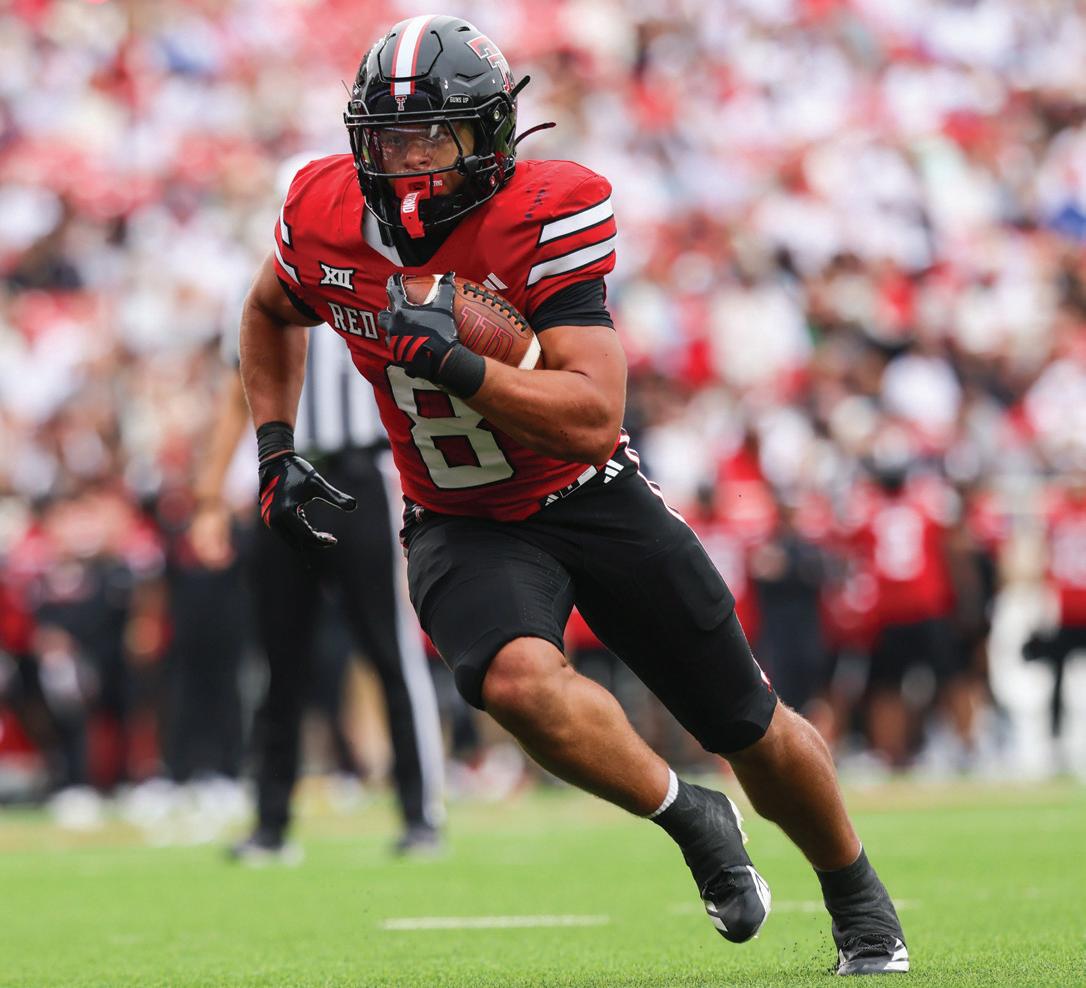
By AUSTIN JACKSON SportS reporter
In July of 2024, the Texas Tech men’s rugby club was told that it no longer would be allowed to play in Urbanovsky Park. Instead, it would be forced to move over a mile away. At first, most of the team members were skeptical about changing a practice location that had been consistent since the 1980s. Players worried, due to the distance from campus, that the security of the club was at risk.
Tech men’s rugby club has played two full games and spent over a year at the West Rec fields on the east side of the John Walker Soccer Complex, and things have gradually improved, team members said.
However, the positive outlook on the change wouldn’t have been possible without senior Ryan Sunderman.
When Sunderman arrived at the new field, he was shown an old equipment shed to use
as a locker room. Inside of it was evidence of a rat infestation.
“When we first moved in, we hadn’t done anything yet to deal with that problem because we didn’t know if it was still around,” Sunderman said. “We actually had a couple of our jerseys torn through and eaten, pretty much by some rats.”
The restoration effort was largely led by Sunderman, who was able to gather roughly $600 of alumni donations to use on improving the shed.
A group of five athletes spent a full day cleaning out the shed. The group took everything out, bleached the floors and used sealant to fill in any holes, stopping rodents from getting inside.
The team was able to use the $600 to buy new lockers, a television, a fridge and a stationary bike. During renovations at the West Rec, turf that was pulled off of other fields was donated to the team to use as flooring in part of the shed.
“There was a lot of rat droppings everywhere, and clearly no one had been in here for a while,” said Roy
Tech
Although recruitment has taken a hit because of the
off-campus location, Sunderman said the playing conditions are significantly nicer.
When Tech would have big

basketball games, the lines would extend all the way to the team’s old field. Fans would leave trash and broken glass bottles on the field.
Sunderman said he remembers finding bottle caps for about a month after Tech basketball played the University of Texas. Additionally, the team has enjoyed the new amenities like the shed, new goal posts, concession stands and a dedicated bathroom facility, which they did not have in Urbanovsky Park, Sunderman said
The team is looking to keep upgrading its new facility, Sunderman said, with visions for the future of the field including an electronic scoreboard and signage to designate the field for rugby. I want to help grow this and make this into that permanent home that you’re going to see for the next 40, maybe even 100 years,” Sunderman said. “I want people to say, ‘Hey, this is the Texas Tech rugby field.’” @AustinJacksonDT
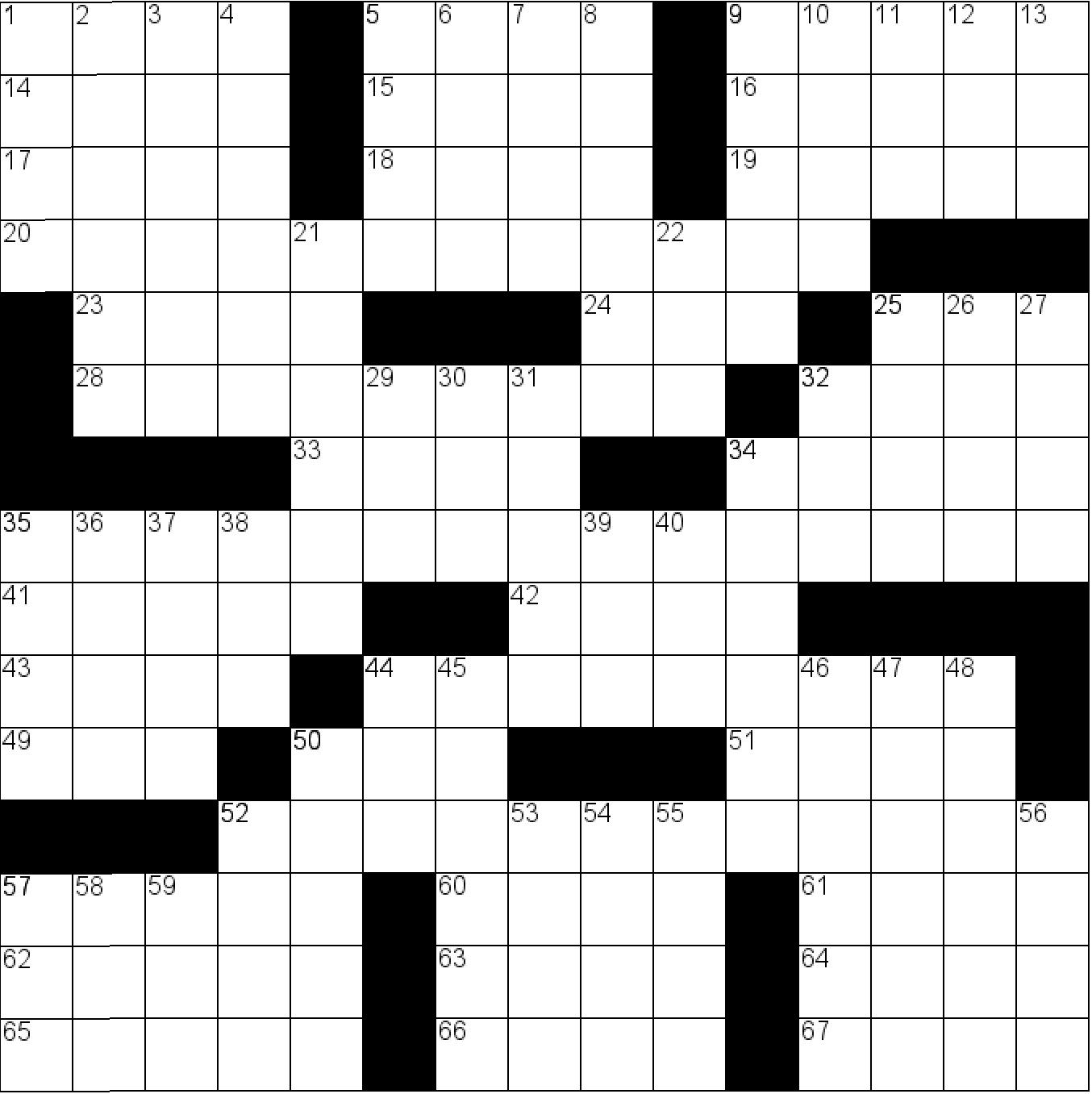
50. Tire measurement
51. Get along 52. Fickle lover
57. They can be stolen or loaded
60. “Dynamite” singer, ___ Cruz
61. Japanese meal in a bowl
62. Steer away
63. Airborne spin on ice skates
64. Flightless birds
65. Fresh cut
66. Word before -friend and -boss
67. Suggested amount
DOWN
1. Implements for boiling 2. Measure of technology performance
3. Call for help
4. Gene variant
5. Restart, as a battery
6. Eurasian mountain range
7. iPhone helper
8. “Can’t call now!”
9. Like some apartment complexes
22. NC nickname, “The ___
Heel State”
25. Bangkok demonym
26. Say no to
27. Close angrily
29. Griddle spritz
30. Anaphylaxis pen
31. Musician, ___
42. Tae-___-do
43. Reason for a day off school
44. Exceptionally close game
49. Acorn bearer
10. Inheritor
11. Pop singer Rita ___
12. Partner to ma’am 13. Word after high or chai 21. Pay a visit: ___ by

Getting offline is a hot topic of conversation for everyone in our modern age. Hitting the TikTok “ignore time limit” just to get a few more scrolls in and reading X, formerly known as Twitter, in bed before falling asleep are pillars of many schedules as the line between the real world and the internet blurs more every day. Many feel distracted by their phone when in class. Whether it’s a text from a friend or an Instagram notification, checking my phone isn’t just a habit — it’s an element of my behavior, a constant in my daily routine — not something so easy to kick. My daily average screen time is about 4 hours and 51 minutes, with an average of 220 times picking up my phone a day. My most-used apps are Instagram, X and TikTok, which means most of the time spent on my phone isn’t even productive. It is a source of entertainment, a medicine for boredom when life isn’t giving me enough stimulation. There are apps that help your focus and lower screen time. These apps can help improve your relationship with technology by gamifying the experience of not being on your phone. In-game rewards for being unplugged makes the short term easier while also allowing for the long-term benefits to settle in.
a timely manner. This is a simple solution but it is surprisingly effective at reducing your screen-time and improving the relationship we have between us and our phones.
Immediately classes became more interesting and I was able to fully understand lessons. Walking around campus without music in my ears and a phone in my hands lets me discover things I never would have, hearing about a club that sounds interesting and experiencing the beauty of the Texas Tech architecture.
For many, phones are a source of control. Knowing exactly how far you are from your next class and the exact time it will take to get there eases a lot of the anxiety that can come from being a student, but when you are able to let go and know that everything will work out if you just trust yourself and your surroundings you can feel more free.
Is our generation doomed by the Pandora’s box that is the digital age, or can we reverse the unhealthy dynamic so many of us have developed with our phones?
After some time, I stopped relying on my phone for the little things. There were no more phantom buzzes or notifications I mistakenly heard. Focusing on everything became far easier. I no longer was bombarded with advertisements and products that I knew I wanted.
Life became quieter, spending time alone became easier, I stopped feeling like I needed every moment of my life to be as stimulating as possible.
In order to replace all of the features this one device has I’d need a watch, a Walkman, a notepad and pen, a pager and way more on me at all times to mimic a fraction of the power that phones can do without overextending its capabilities.
Another issue I faced was this intense fear of missing out. In the modern age, we are so used to every piece of information being available at our finger tips, knowing where everyone we have ever met was and what they were doing is something we take for granted.
In the modern age there is a feeling that one life
isn’t enough. Even with a full schedule that contains fulfilling social life, balancing work, school and other commitments it doesn’t feel enough anymore.
The act of consuming and processing new information is so normalized in our brains that it feels necessary to live everyone else’s life too. Getting over that feeling, understanding that the already busy schedule many Tech students have is plenty for one person is a huge key to developing a better relationship with your phone.
Unfortunately, it is not realistic to hope that everyone will stop bringing their
phones to campus. They are just too essential to most people’s day to day lives. The world is built around technology. It just doesn’t make sense for people to simply get rid of their smartphones. It barely makes sense for people to even use them less than they already do. Most people’s work, school and social lives all revolve around the internet.
So, is there nothing we can do? Is our generation doomed by the Pandora’s box that is the digital age, or can we reverse the unhealthy dynamic so many of us have developed with our phones? Not entirely. There
are many people who have chosen an alternate route. Some get rid of their phones entirely, others download apps to reduce their scrolling time.
There is a huge spectrum of solutions but they all start at the same place: knowing the problem.
I hate my relationship with my phone, and I’m sure many Tech students feel the same. It’s time to try something different because the way our generation uses phones is incredibly unhealthy. Think about your relationship with your phone and make the change.
@WillWrightDT
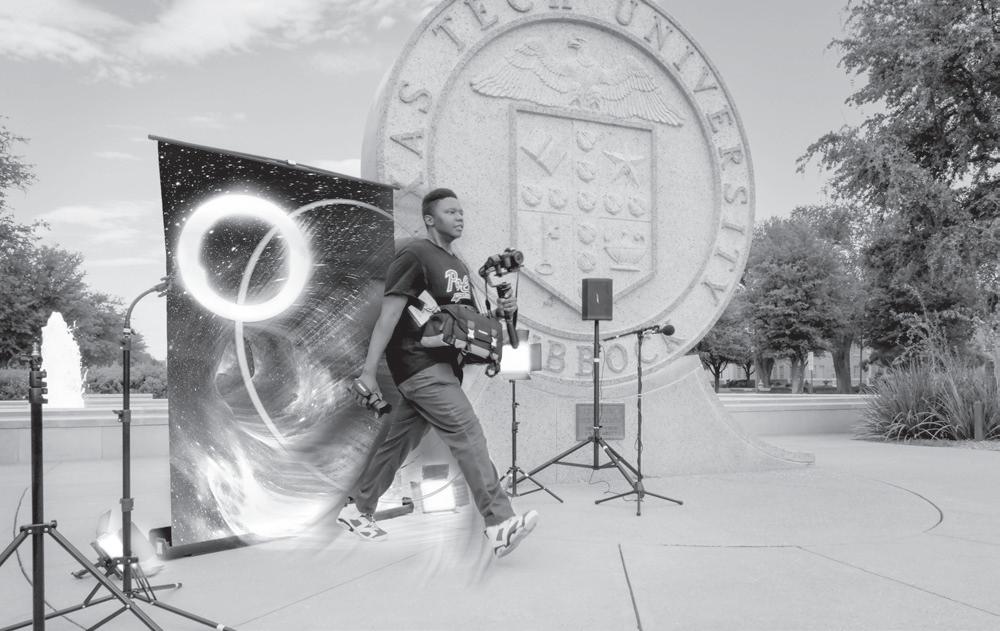
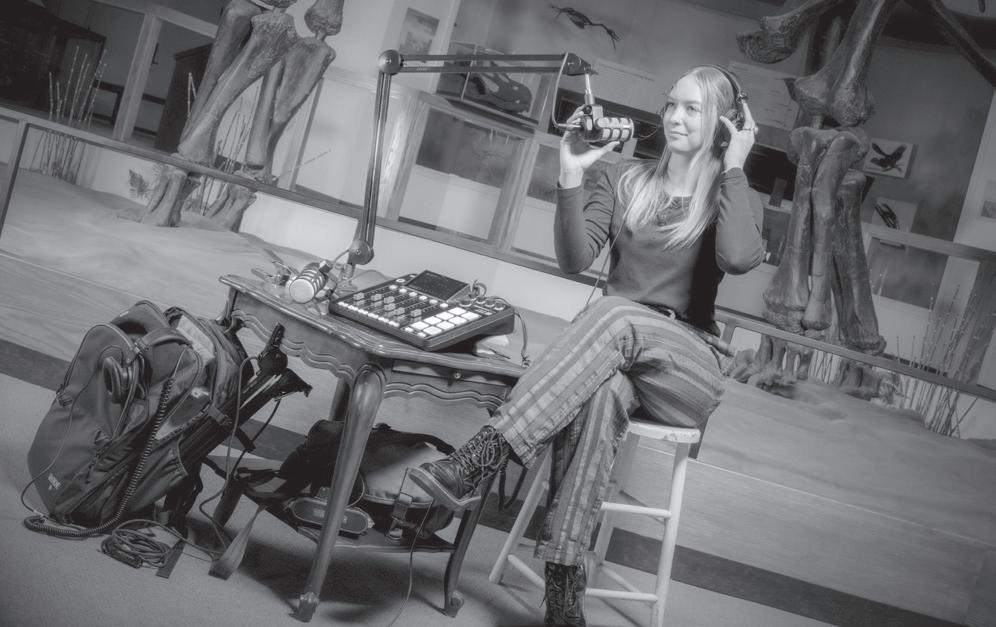
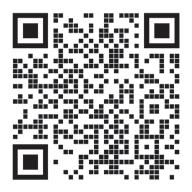
While these apps can be very useful, I find it more effective to cut off the source.
I think it would be best for me to stop taking my phone to campus entirely, hoping to improve my attention span, focus more on class and get more work done in
It’s also easier to do homework. I found myself staying on campus after classes finished just to keep my phone away for a bit longer. This helped with procrastination as well as giving me the ability to fully mentally reset when I got home from a long day.
However, using my phone less was not all sunshine and rainbows. It was a huge learning curve that took a lot of getting used to — our phones are just too useful.
By AVERY MENDOZA NeWS reporter
As school kicks into gear in West Texas, Texas Tech Student Health Services is offering advice to help students prevent seasonal sickness.
Dr. Erika Radford, family medicine doctor for Tech Physicians and assistant medical director for SHS, said big events at the start of the semester with large gatherings are susceptible to bacteria spreading.
“A lot of people are in situations where there’s a lot of crowds,” Radford said. “A lot of people together, usually sharing food or drink of some kind, and that’s a great way for illnesses to spread.”
Another factor to keep in mind is the cooling weather, Radford said, as students remaining outside less may let respiratory viruses spread in indoor spaces.
“Whenever you get a lot of people inside for long periods of time, you just have more potential for passage of infectious organisms,” Radford said.
While colds and the flu are illnesses to be aware of, Radford said COVID-19 is another illness students should keep an eye out for. Nearly 25 percent of patients tested for COVID at the University Medical Center the week of Sept. 1 were positive.
“We have definitely seen a rise in COVID. 124 tests were ordered last week, and of those, 30
were positive. So, that’s a 24.19 percent positivity rate,” Radford said. “It could be a lot higher if we were to test the whole school population, which we’re not.”
To combat the spread of infection, students should practice personal hygiene and stay clean in communal spaces.
“To help with the prevention of spread, a lot of hand washing, hand sanitizer use can help, too,” Radford said. “If you’re going to go to the Library, you’re going to use a public computer. You can bring these antibiotics, antibacterial, antiviral wipes and wipe it down.”
Students who are showcasing symptoms should avoid communcal areas and ensure they receive treatment, Radford
said, in order to prevent the spread of infection.
Radford said students who are expereincing symptoms of illness should schedule an appointment with the Student Health Center to avoid further spreading.
Many students who get sick still choose to attend classes, but diagnosis and treatment are essential to keeping others healthy Radford said.
“That’s a big stressor for a lot of students. By (making an appointment), the students can stay home and stay relatively isolated, and that way we can further prevent the spread even more,” Radford said.
The SHC currently offers

Students can schedule an appointment by calling 806-
By ERIN DEMBO Staff Writer
The Texas Tech Library is launching a new series of workshops for AI competencies, which aim to teach students the knowledge to use artificial intelligence properly.
Through these workshops, students can receive a certificate acknowledging they understand AI concepts such as analysis evaluation and ethical considerations.
Brian Quinn, a University Libraries librarian, said he is running the workshops
because of his year of experience as a member of the Association of College and Research Libraries Task Force for AI Competencies, a program focused on how to ethically and efficiently integrate AI in library settings.
“We developed these competencies and realized that they are generalizable to a larger population, and so I decided to create a workshop series,” Quinn said.
According to the Teaching Learning & Professional Development Center, the use of AI is up to each faculty member’s discretion in
their syllabi. They provide statements which outline expectations and reminders of academic integrity for students.
Quinn said if AI is approached as a coaching partner in the learning process, it can help in a student’s development. He said not to depend on AI, but instead collaboratively work alongside it.
“You don’t wanna let it exploit you because if you enter into that kind of relationship with the technology, it’ll take power over you,” Quinn said.
The workshop series is
designed to give students a level of understanding and familiarity with the technology so they can feel comfortable using it, Quinn said, as well as knowing when it’s appropriate to use.
Zaine Smith, a first-year business major from Denton, said he believes AI platforms can assist people in making more educated choices, such as in economics fields.
“I think it could help people to make more informed decisions, especially financially going into big business deals,” Smith said.
This series is an opportu-
nity for students as the use of AI in educational settings increases, Quinn said. Integrating such technologies may give an edge to those entering their careers.
“They’re taught by highly trained brains who are familiar with the technology,” Quinn said. “(It’s) a chance to really learn about AI in a way that will help you to be more competitive on the job market. So, there’s a practical aspect to it.”
Riley Sherman, a second-year architecture student from Bakersfield, California, said AI could be useful
for getting another perspective when tackling certain issues.
“If I didn’t understand a problem, I would see how it would go through a problem and solve it in its own way,” Sherman said. “I could use its information to help me when I come up with a similar problem.
The workshops are online, free and start Oct. 2 from 3-4 p.m. on Thursdays. Registration closes two days before the event, and a link to sign up is available through the University Library.
